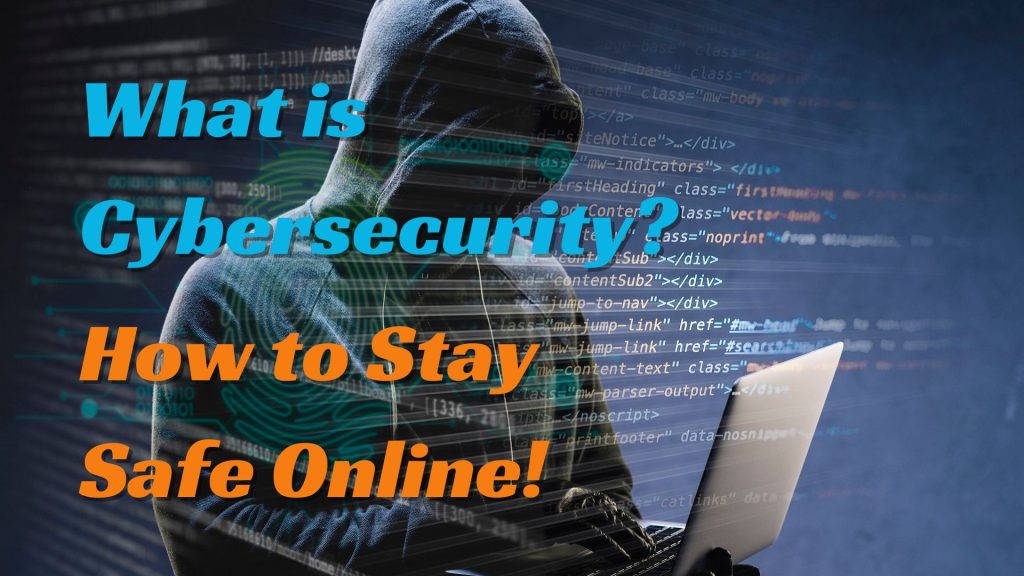
Getting started with a cyber security course online is straightforward and involves a few key steps to ensure you choose the right course that fits your learning goals and preferences:
1. Define Your Learning Goals
- Career Aspirations: Determine your career objectives in cyber security, whether it’s to start a career, advance in your current role, or gain specialized knowledge in a specific area like ethical hacking or network security.
- Skills Development: Identify the specific skills you want to acquire, such as threat detection, incident response, risk management, or compliance with industry standards.
2. Research Online Courses
- Accredited Providers: Look for reputable institutions, universities, or online platforms that offer accredited cyber security courses. Consider providers like Coursera, edX, Udacity, Cybrary, and Pluralsight, which offer courses from leading universities and industry experts.
- Course Content: Review course descriptions, syllabi, and module details to ensure they cover topics aligned with your learning goals. Check for practical components like labs, simulations, or real-world projects.
- Delivery Format: Choose between self-paced courses, scheduled classes, or hybrid formats that combine online learning with in-person sessions, depending on your schedule and preferred learning style.
3. Check Instructor Credentials
- Expertise and Experience: Verify that instructors have relevant industry experience in cyber security and hold certifications such as Certified Information Systems Security Professional (CISSP), Certified Ethical Hacker (CEH), or CompTIA Security+.
4. Certification and Recognition
- Industry-Recognized Certifications: Ensure the course prepares you for certifications that are valued in the cyber security field, such as CompTIA Security+, CEH, CISSP, or others relevant to your career goals.
- Employer Recognition: Choose courses that are recognized by employers and align with industry standards to enhance your credibility and job prospects.
5. Cost and Financial Considerations
- Course Fees: Compare tuition costs, additional fees, and potential financial aid options, including scholarships or payment plans, to find a course that fits your budget.
- Return on Investment (ROI): Evaluate the potential ROI of the course in terms of career advancement, salary increases, or job opportunities in the cyber security industry.
6. Read Reviews and Testimonials
- Student Feedback: Read reviews and testimonials from previous students to understand their experiences with the course content, instructor quality, support services, and overall satisfaction.
7. Enroll and Start Learning
- Registration Process: Once you’ve chosen a course, follow the enrollment instructions provided by the online platform or institution.
- Access Learning Materials: Gain access to course materials, lectures, assignments, and resources through the online learning platform.
- Engage Actively: Participate in discussions, complete assignments, and engage with peers and instructors to maximize your learning experience.
8. Networking and Career Support
- Networking Opportunities: Take advantage of networking opportunities offered through online forums, virtual meetups, or alumni networks to connect with industry professionals and peers.
- Career Services: Explore career support services, job placement assistance, or professional development resources offered by the course provider to enhance your job readiness.
9. Continuous Learning and Growth
- Stay Updated: Keep pace with evolving trends, technologies, and threats in cyber security by pursuing continuous learning opportunities, attending webinars, or joining professional associations.
Conclusion
Choosing an online cyber security course involves thorough research, consideration of your career goals, and ensuring the course content aligns with industry standards and your learning preferences. By following these steps, you can embark on a rewarding journey to acquire essential cyber security skills and advance your career in this dynamic field.
Best Cyber Security course
Choosing the best cybersecurity course depends on your career goals, skill level, and what you want to specialize in. Below are some top-rated cybersecurity courses and certifications from reputable organizations that cater to different levels of expertise:
1. Certified Information Systems Security Professional (CISSP)
- Provider: (ISC)²
- Level: Advanced
- Description: CISSP is one of the most recognized and respected certifications in the field. It covers security architecture, risk management, cryptography, and more. It is ideal for security professionals who want to advance in leadership roles.
- Best For: Experienced professionals looking for advanced knowledge in managing and designing cybersecurity programs.
- Prerequisites: Requires at least five years of work experience in at least two of the eight CISSP domains.
- Website: ISC² CISSP
2. Certified Ethical Hacker (CEH)
- Provider: EC-Council
- Level: Intermediate
- Description: CEH teaches the skills necessary to become a white-hat hacker or penetration tester. It covers hacking techniques, vulnerabilities, and tools.
- Best For: Individuals interested in ethical hacking and penetration testing.
- Prerequisites: Basic knowledge of network and information security is recommended.
- Website: EC-Council CEH
3. CompTIA Security+
- Provider: CompTIA
- Level: Beginner to Intermediate
- Description: Security+ is an entry-level certification that covers essential cybersecurity skills like threat management, risk management, and network security. It is often considered the foundational certification for anyone starting a cybersecurity career.
- Best For: Beginners or those new to IT and cybersecurity.
- Prerequisites: Basic knowledge of IT and networking is helpful but not required.
- Website: CompTIA Security+
4. Certified Information Security Manager (CISM)
- Provider: ISACA
- Level: Advanced
- Description: CISM focuses on managing and governing enterprise information security programs. It covers risk management, incident response, and governance frameworks.
- Best For: Professionals aiming for management or executive roles in information security.
- Prerequisites: Five years of work experience in information security management.
- Website: ISACA CISM
5. Google Cybersecurity Professional Certificate
- Provider: Google via Coursera
- Level: Beginner
- Description: This online course provides a solid foundation in cybersecurity fundamentals, including tools, techniques, and frameworks used in the field.
- Best For: Beginners looking to start a career in cybersecurity.
- Prerequisites: No prior experience needed.
- Website: Google Cybersecurity Certificate
6. Certified Cloud Security Professional (CCSP)
- Provider: (ISC)²
- Level: Intermediate to Advanced
- Description: CCSP focuses on cloud security principles, architecture, and operations. It is ideal for security professionals working with cloud infrastructure.
- Best For: Those looking to specialize in cloud security.
- Prerequisites: At least five years of experience in IT, with at least one year in cloud security.
- Website: ISC² CCSP
7. SANS Cybersecurity Training and Certifications
- Provider: SANS Institute
- Level: Beginner to Advanced
- Description: SANS offers a variety of specialized cybersecurity courses and certifications, ranging from incident handling and digital forensics to penetration testing and security leadership.
- Best For: Professionals looking for specialized or advanced skills in specific areas of cybersecurity.
- Website: SANS Institute
8. Offensive Security Certified Professional (OSCP)
- Provider: Offensive Security
- Level: Advanced
- Description: OSCP is a hands-on certification focused on penetration testing and ethical hacking. Candidates must complete real-world hacking scenarios and prove their skills in an exam environment.
- Best For: Penetration testers and ethical hackers.
- Prerequisites: Strong understanding of networking, Linux, and basic scripting.
- Website: Offensive Security OSCP
9. MIT Cybersecurity for Managers
- Provider: MIT Sloan School of Management (online via edX)
- Level: Intermediate
- Description: A management-focused course that teaches business leaders how to implement effective cybersecurity strategies and manage risks within an organization.
- Best For: Business leaders and managers responsible for cybersecurity strategy.
- Website: MIT Cybersecurity
10. Coursera’s Introduction to Cyber Security Specialization
- Provider: University of Maryland via Coursera
- Level: Beginner
- Description: This specialization covers basic cybersecurity concepts, including cryptography, software security, and hardware security.
- Best For: Individuals new to cybersecurity.
- Prerequisites: None.
- Website: Coursera Intro to Cyber Security
Factors to Consider:
- Your current skill level: Choose a course that matches your current experience level.
- Career goals: Select a course that aligns with your area of interest (e.g., ethical hacking, management, cloud security).
- Accreditation: Look for certifications that are widely recognized by employers.
These courses offer diverse learning paths, allowing individuals to advance in various areas of cybersecurity, from foundational knowledge to specialized expertise.

